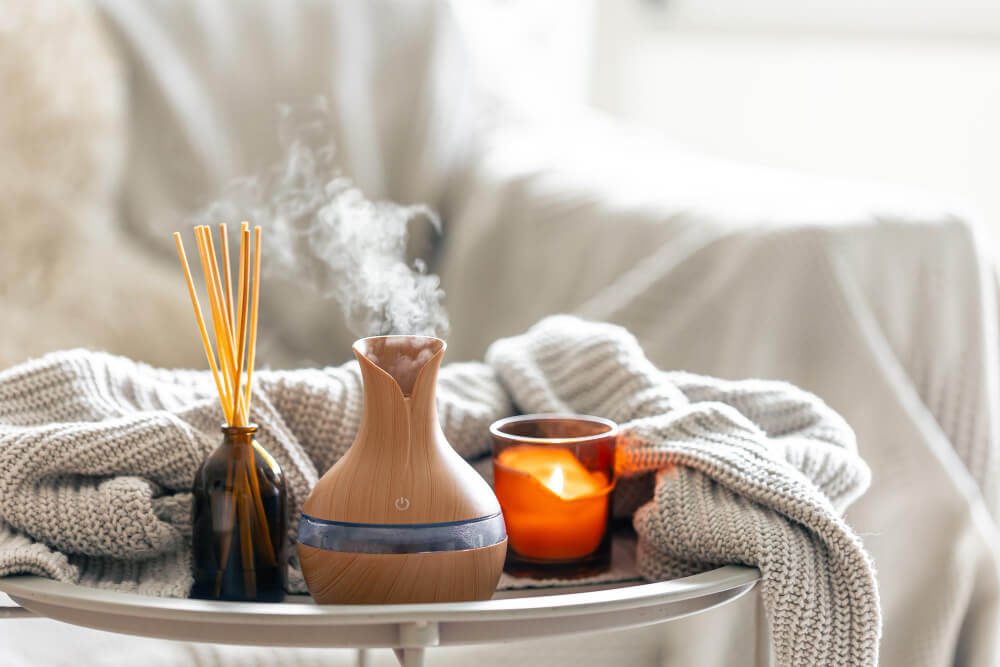Why Are Japanese Homes So Clean? Secrets Unlocked!
Updated Sat, Jul 12, 2025 - 6 min read
Top blog articles
If you’re asking yourself, “Why are Japanese homes so clean?”, you’re one of us who constantly wonder about the spotless living culture in Japan. Japanese houses seem to radiate calm, order, and cleanliness. Even when you visit unannounced!
Today, we’ll try to understand the unique ways Japan keeps its homes sparkling—everyday routines that make tidiness a way of life. Interestingly, the secret isn’t just in daily chores—it’s a fascinating blend of cultural values, community rituals, and mindful habits passed down through generations. Let’s explore these key reasons in more detail below.
Cleanliness Is a Cultural Cornerstone
In Japan, cleanliness is more than a task—it’s a social value deeply embedded in daily life. Whether you’re walking through a bustling city or a quiet village, you’ll notice pristine streets, sparkling hospitals, litter-free parks, and spotless public spaces.
It’s common to see residents sweeping the streets outside their homes or participating in neighborhood clean-up days. This sense of community responsibility starts at home and radiates outward, ensuring that cleanliness is a shared value, not just a personal one.
The Ritual of Ōsōji: Japan’s Big Spring (Year-End) Cleaning

One of Japan’s most cherished cleaning traditions is ōsōji, which literally means “big cleaning.” While many countries embrace spring cleaning, in Japan, this ritual typically takes place at the end of December, just before the New Year.
What Makes Ōsōji Special?
- Deep cleaning: Families tackle every nook and cranny—windows, lighting fixtures, kitchen vents, and even under tatami mats.
- Decluttering: Storage spaces are organized, and unnecessary items are discarded to start the new year fresh.
- Spiritual significance: Rooted in Shinto beliefs, ōsōji is seen as a ritual of purification, preparing the home to welcome the New Year deity, Toshigami. A clean home symbolizes a clean slate, inviting good fortune and positive energy.
- Family bonding: Everyone, from grandparents to small children, participates, making it a time of togetherness and shared accomplishment.
Cleanliness Begins from a Young Age
Japanese children learn the importance of tidiness early on, especially in Japanese schools. Instead of relying on janitors, students participate in souji—a daily cleaning routine that involves sweeping, mopping, and organizing classrooms, hallways, and bathrooms. These habits become lifelong, instilling responsibility, teamwork, and respect for shared spaces from a young age.
And, parents reinforce these cleaning habits at home, ensuring that kids understand the importance of tidiness and personal responsibility. This early education means that by the time children reach adulthood, keeping their living spaces clean becomes second nature.
The Genkan Ritual
Step into any Japanese home, and you’ll be greeted by the genkan, a traditional entryway where everyone—family and guests alike—removes their shoes before stepping inside. This simple yet powerful custom prevents dirt and germs from being tracked indoors.
- Indoor slippers are provided for comfort and hygiene.
- Bathroom slippers are used exclusively in bathrooms and left at the door afterward.
- In rooms with tatami mats, it’s customary to go barefoot to preserve the delicate flooring and maintain cleanliness.
Since many Japanese people sit and sleep close to the floor, keeping floors spotless is essential for comfort and health.
They Have Responsible Waste Management: The Art of Gomi-Bako
Japan is renowned for its meticulous approach to waste disposal. Sorting trash responsibly isn’t just encouraged—it’s a legal requirement.
How Does It Work?
- Trash is separated into burnable, non-burnable, recyclables (plastic, paper, glass), and oversized items.
- Each type of waste has a designated collection day, and missing it means storing garbage until the next pickup.
- Detailed guides on community compliance and even smartphone apps help residents follow local rules. This ensures everyone does their part to keep neighborhoods clean and eco-friendly.
- Failing to sort trash correctly can result in fines and penalties. Therefore, attention to detail is a must.
Japanese Embrace Minimalism and Mindfulness

Japanese homes are known for their minimalist design, with uncluttered spaces and thoughtful organization. This isn’t just an aesthetic choice; it’s rooted in cultural and spiritual beliefs. Many Japanese people practice Buddhism, which emphasizes simplicity, mindfulness, and living in harmony with one’s surroundings.
This also makes cleaning and home maintenance easier and more meaningful. A clutter-free home is seen as a reflection of a clear mind and a respectful attitude toward guests. It’s considered impolite to invite someone into a messy home!
They Know How to Battle Mold and Humidity
Japan’s hot, humid summers create the perfect breeding ground for mold and mildew. To combat this, Japanese households have developed smart habits:
- Good ventilation: Windows and doors are often left open to allow fresh air and sunlight to circulate.
- Closet care: Closet doors are kept ajar to prevent moisture buildup.
- Daily routines: Futons and bedding are regularly aired out in the sun, a practice known as futon hoshi, which kills bacteria and keeps bedding fresh.
These routines go beyond mere cleaning—they’re about creating a healthy, harmonious living environment.
Other Unique Japanese Cleaning Habits
Japanese households have developed a suite of habits that make cleanliness effortless and effective:
- Separate toilet rooms: Many homes have distinct rooms for toilets and bathing, reducing cross-contamination and boosting hygiene.
- Handwashing and gargling: It’s common to wash hands and gargle upon returning home, especially during cold and flu season, to maintain health and cleanliness.
What We Can Learn from Japanese Cleaning Culture
Want to bring a bit of Japanese order and serenity into your own home? Here’s how:
- Start young: Teach children to clean up after themselves, just like in Japanese schools.
- Make cleaning a ritual: Set aside time for deep cleaning, especially at the start or end of the year.
- Sort trash diligently: Create a system for separating recyclables and waste.
- Embrace minimalism: Keep only what you truly need and cherish.
- Respect shared spaces: Treat your home and community with care and consideration.
Why are Japanese homes so clean? We have unraveled this mystery now! Japanese homes are clean not just because of strict routines, but because cleanliness is a cherished value—taught from a young age, reinforced by schools, and woven into the fabric of society. By adopting some of these mindful habits, anyone can create a more peaceful, healthy, and inviting home, no matter where they live.









